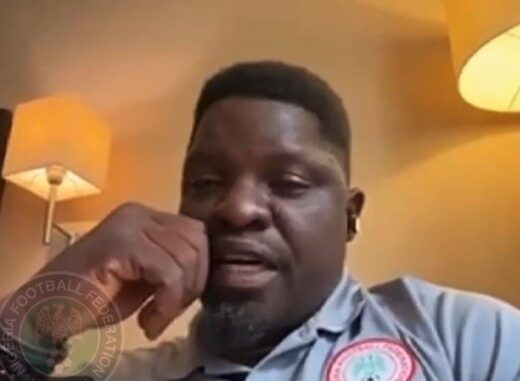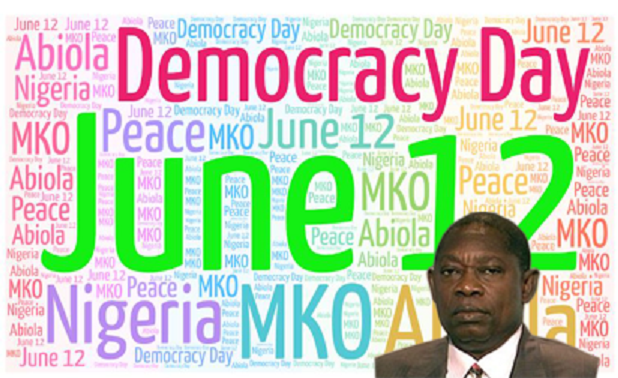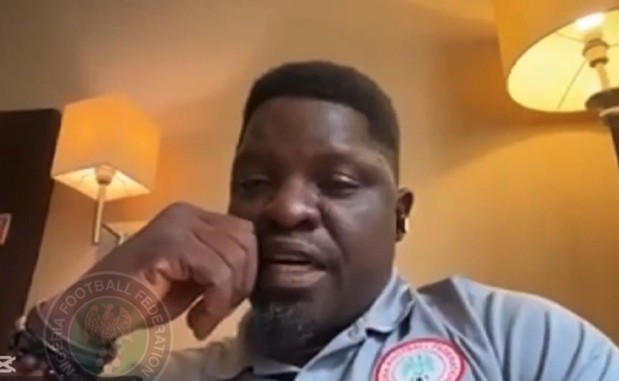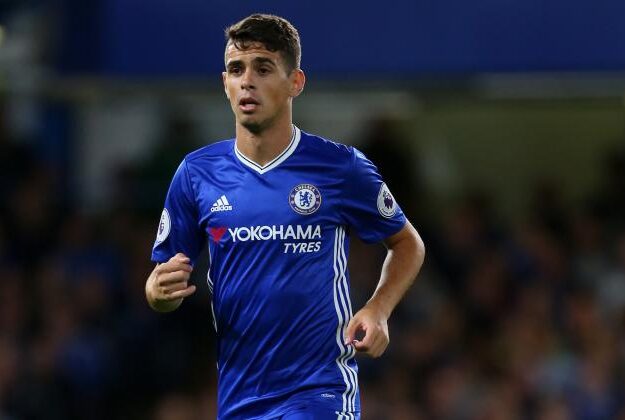By Habib Aruna
The month of June has always brought back fond memories to Nigerians. It was this month that Nigeria conducted the freest, fairest and most credible election of her chequered political history. It was this same month that the heroine of the struggle against military and dictatorship, Kudirat Abiola was murdered in cold blood. Yet it was this month that the dark-goggle general, the Nigerian maximum ruler, Sani Abacha drop dead.
Whether it is by sheer coincidence or not, Abacha, who was at the helm and was aware of the plan to kill Kudirat in the street of Lagos died on the 8th of June 1998, while Kudirat, who became one of the leading lights in the fight for the revalidation of the June 12 presidential election, was killed on the 9th of June, 1996.
History has a way of passing judgments. And its judgment is not only final, it’s also lethal and overreaching. Before our very eyes, we have seen how the death of Kudirat, the fearless and dogged wife of the winner of the June 12 election, has been celebrated yearly by Nigerians, who normally used the occasion to acknowledge her contributions to the birth of the current democratic process. The point of convergence has however been the Cenotaph built in her memory at the spot she was shot by Abacha goons.
Now, compare the above with June 8th, the day Abacha suddenly died and you will notice the huge difference in the way and manner the public perceive it and the reactions that normally trails it. While a day after (the 9th) is used to celebrate a hero, a fighter and a martyr who gave her life to a struggle; June 8th on the other hand, is a day reserved to pour venom and abuse on a corrupt dictator and a maximum ruler, who used raw power to silence opposition.
Abacha never hid his distaste for representative democracy; he never shied from putting his hands on public treasury and in the process siphoning billions of dollars; his reign was one of the worst in the history of Nigeria given the way he clamped down on opposition figures and those he felt were opposed to his plans to rule the country forever. Worst still was his disposition to silent and send to early graves members of the opposition. Apart from Kudirat, other notable figures that were unlucky to escape and got the bullet were, Alfred Rewane, Bagauda Khaltho, Ken Saro -Wiwa, Shehu Musa Yar’Adua among others. Abacha’s brutal regime was by far the worst human rights violator in the history of this country. It can only be compared to that of his co-conspirator, General Ibrahim Babangida, who annulled the June 12 election.
Yes, the most important date in June is that of the 12th, a day that will remain very symbolic in the annals of this country for a long time. It was the day Nigerians came out in droves to vote in a presidential contest between Bashorun Moshood Abiola of the Social Democratic Party (SDP) and Alhaji Bashir Tofa of the National Republican Convention (NRC). It was clear after voting on that rainy day, that Nigerians had decided to forgo their religious and tribal differences for a better country.
I happened to be in Kano at that time. After voting at a polling station along Hadejia road, one of the voters, a Yoruba guy who I later discovered was a banker, could not hold himself and he started a conversation with me on what he saw as the uniqueness of what was happening before our very eyes. We saw the long queue made up of mostly Hausas queuing in front of the picture of Abiola. It was easy to know who was winning at each polling booth because of Option A4, a novel method of voting introduced by Professor Humphrey Nwosu.
After the SDP candidate, Abiola won with a landslide at our polling station, my new friend and I, decided to drive around town to monitor the election. We went to Gando Alubosa, where the NRC candidate, Tofa, resides, and where he was likely to vote. When we got there, the residents were in joyous mood. On inquisition, we gathered that they were happy that Abiola defeated Tofa in his backyard. The atmosphere that day in Kano was that of animation. People from all walks of life were happy about an election they had waited for so long to see.
We later learnt that the Kano scenario was replicated throughout the country. Abiola was coasting home to victory. The results were indeed out the next day and it was very clear to the world that Abiola won in every zone of the country. It was indeed a pan-Nigerian victory. The electorate were expectedly waiting for the winner to be announced. But the military under Babangida had their own agenda. Few days after, the June 12 election was wickedly annulled by the Junta with an unsigned statement by Nduka Irabor.
Till now Babangida has not told us the reason for the annulment; he has not convincingly told his side of the story on why the mandate freely and willfully given to Abiola by majority of Nigerians can be so callously stolen by a few rapacious and parasitic elements in the military. How can an election whose outcome was supposed to cement the fractious unity of the country be so annulled without any justifiable reasons? This is a pertinent question that is still be resonating in the minds of most Nigerians as we again celebrate the June 12 election, a day that happily and appropriately, has been named Democracy Day by the Muhammadu Buhari administration.
However, the consolation for now is that at last the day has been situated in its rightful place in the history of the country. But the day will always be used to vilify, crucify and demonise Babangida, while at the same time be used to remember the ultimate sacrifice made by Abiola for our democracy. Since the Shakespeareans cannot act Hamlet without the Prince, there is no way June 12 will be mentioned without the noble contributions of the man, Abiola, who gave his life rather than capitulate or surrender his mandate.
The late Gani Fawehinmi, the great human rights lawyer, who stood throughout with Abiola during the struggle to reclaim his mandate, read a letter from Abiola that was smuggled out by his daughter, Lola Abiola-Edewor at his residence sometime in 1998. In the letter, which Gani read while fighting back tears, Abiola told Gani that Heaven will not forgive him if he surrenders the mandate. Of course he did not. He died in confinement after all entreaties for him to surrender the mandate failed.
Today, as we again celebrate June 12, we must continue to remember the heroes who fought and died for the struggle. We should also not be off in our guard because “eternal vigilance remains the price for liberty”. Since democracy remains a journey and not a destination, we have to continue to hold our leaders accountable and also ensure that democratic institutions and structures are consistently oiled.
You may be interested

2024 CHANQ: History Not Kind To Us Against Ghana –Ogunmodede
Webby - December 24, 2024Home-based Super Eagles coach Daniel Ogunmodede says history has not been good to Nigeria when they face rivals Ghana.The home-based…

Ex-Chelsea Star Oscar Returns To Boyhood Club Sao Paulo
Webby - December 24, 2024Former Chelsea midfielder Oscar is returning to his Brazilian boyhood club Sao Paulo after 14 years, which included a long…

‘I’m Incredibly Proud’– Arokodare Talks Up Genk’s Unbeaten Home Streak
Webby - December 23, 2024Tolu Arokodare is full of excitement followingGenk’s historic victory over Anderlecht, reports Completesports.com.Sunday’s win at the Cegeka Arena was the…





















![American Pastor, David Wilson Seen Eating The Box Of Woman Who Isn’t His Wife [Video]](https://onlinenigeria.com/wp-content/uploads/2019/10/american-pastor-david-wilson-seen-eating-the-box-of-woman-who-isnt-his-wife-video-150x150.jpg)






![BBNaija: Seyi And Tacha’s Fans Clash At Campaign Ground In Surulere Stadium [Video]](https://onlinenigeria.com/wp-content/uploads/2019/09/bbnaija-seyi-and-tachas-fans-clash-at-campaign-ground-in-surulere-stadium-video-150x150.png)

